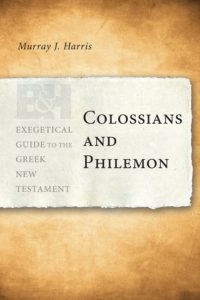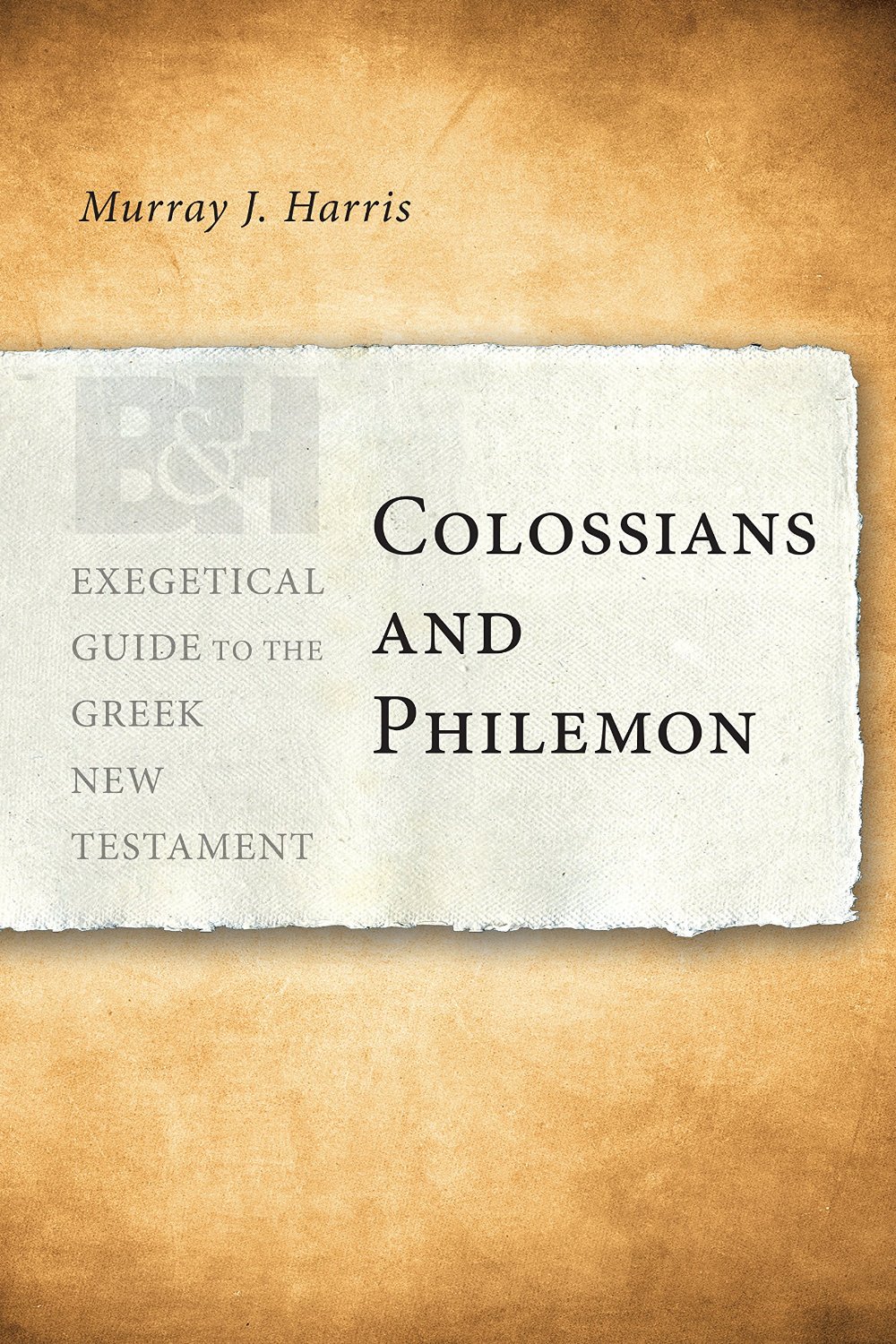 This week’s Book Review is on Colossians and Philemon (Exegetical Guide to the Greek New Testament), by Murray J. Harris (Nashville: B&H Academic, 2010).
This week’s Book Review is on Colossians and Philemon (Exegetical Guide to the Greek New Testament), by Murray J. Harris (Nashville: B&H Academic, 2010).
Murray J. Harris is professor emeritus of New Testament Exegesis and Theology at Trinity Evangelical Divinity School. This book is the first of the Exegetical Guide to the Greek New Testament series, of which many more will be welcomed by scholars, pastors, and students alike.
Harris’ introduction is brief, noting some brief arguments for Paul as the author of both Colossians and Philemon. Paul probably wrote the letters during his first Roman imprisonment (4, 207-209) in order to exhort them away from their relapse into paganism and to combat false teaching (5). Harris provides a bibliography for further reading on the occasion for the letters and the “Colossian heresy.”
The purpose of the series is to deal extensively with grammatical and syntactical issues, while briefly explaining the implications of such issues for theological interpretation. Harris interacts heavily with secondary literature, showing that he has done the difficult job of wading through various grammatical analyses of the texts by others. He does a superb job of explaining the various grammatical and syntactical possibilities for each phrase. He sometimes also gives various possible interpretations of a word if it is debatable and significant (e.g., apekdusamenos in Col 2:15) . Each section begins with Harris’ custom block diagram, intended to explain the structure of the passage. Next comes Harris’ exegetical spadework, followed by a list of suggested further readings for topics that surface in text. Last, Harris provides homiletical suggestions in the form of a bare sermon outline. After the full text has been examined, a translation of each epistle is given in its entirety: first a literal translation, followed by an extended paraphrase.
Harris provides this rich information in various sections and clearly states his exegetical decisions and theological conclusions throughout the book. This contrasts with two similar series, SIL International’s Exegetical Summaries series and Baylor’s Handbooks on the Greek Text. SIL’s series focuses solely on grammatical and syntactical issues and explains the positions of a multitude of secondary literature, but the authors make no decisions themselves. They are neutral providers of information. Baylor’s series focuses on each clause and word, often simply providing the author’s decision (e.g., “thou: Genitive of possession). It does not provide extensive bibliographic information, sermon outlines, or full translations of the biblical books as Harris does. All three series have their advantages, but Harris’ volume makes a greater contribution to scholarship since he makes arguments that may be evaluated and appropriated.
One way Harris could have improved the volume is to include some discussion of Pauline theology in exegetical decisions. While he does make references to passages elsewhere in the Pauline corpus, his discussions on passages involving words such as “body,” “flesh,” “rulers and powers,” “elementary spirits,” etc. would have been enriched by a brief discussion of Paul’s technical uses of these phrases. The reader will only find recommended resources for further reading and it seems unfortunate that Harris does not expand his discussions to include his vast knowledge of the field.
It is especially important to consider Paul’s theology when exegeting his letters because his theology can affect the semantics of his statements. For example, the phrase “in Christ” is Paul’s technical phrase for union with Christ, and it can often (in my opinion) function differently semantically than it does grammatically. In linguistic terms, Harris does not account heavily for pragmatics, which can skew one’s grammatical decisions. Nevertheless, this is a minor point since Harris was likely limited by space and he surely took Paul’s theology into consideration at least implicitly as he made his decisions.
Harris’ work is the first of many eagerly awaited volumes that will aid the student and pastor in studying and preaching while also contributing to scholarly discussions on key passages where grammatical and syntactical issues are in dispute. Any student or pastor could immensely improve their Greek by translating through Colossians and Philemon while using Harris’ book as a guide.
If you’re looking for resources to improve your Greek, check out our Basic Greek videos to help re-learn or improve your basic Greek knowledge. You can also sign up for our Basic Greek for the Week e-mail and receive a paradigm each week with brief explanation and some brief translation exercises.


2 comments